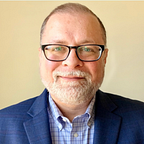Remembering 9/11: People Before Profits
As a young sales manager leading two offices in Texas, I remember listening to talk radio on my drive to the first client meeting on Tuesday, September 11th, 2001 when I heard a news story about reports of a plane striking a building in New York City. Within 15 minutes I was already at the client’s high-rise office in North Dallas when news of a second plane hitting the second tower of the now-identified World Trade Center twin towers was being shared among the employees. Realization dawned on all of us: these were not accidents, but suicide attacks.
No one at the client’s office objected to me excusing myself from the crowd standing in front of the plasma TV showing replays of the second plane slamming into the south tower.
As I left the client’s office in my car, I called the office administrators of both offices I oversaw and relayed the news (they were unaware) and told them to close both of the offices and send all of the employees home for the day to pray, mourn, and be with their families.
As I drove past the north end of Dallas/Fort Worth International Airport, I realized no planes were landing or taking off. It was eerie. Moreover, it was there on Highway 121 passing under the normally congested flight paths for runways 18R and 13R where I received the call from my boss which would forever change whom I chose to work for.
My boss was only a few years older than myself, yet his tone and admonition struck me as someone with far less experience and wisdom.
Boss: “Anthony, why did you close both of our Texas offices?”
I asked him if he’d heard the news about the World Trade Center attacks and the new report of a plane crashing into the Pentagon. He had.
And then he said something to me that forever changed how I viewed business leadership.
Boss: “We are staying open. Our clients may want to rent AV gear from us (our firm sold and rented audio/visual equipment) so that their employees can watch the news. You can take the day off if you want, but we are not closing the offices.”
Stunned, I couldn’t believe the warped logic and fear-driven control in his voice. It took me a few moments to collect myself before I responded.
Me: “[First name redacted], are you telling me you think businesses are going to stay open today and actually pay for their employees to watch the news on big screens? Are you kidding me?” Before he could respond, I emplored him, “[First name redacted], as a business leader, this is your moment to decide how to respond during a crisis. This is a pivotal moment and you need to lead by example here. This isn’t over yet, and our country is under attack. No one is going to buy or rent from us today. This is your moment to act like the inspirational quotes plastered all over your office walls and lead by example. [First name redacted], today our employees need to be with their families and loved ones. That’s the call you need to make. Close the offices.”
Our call only lasted a few more moments before I informed him I would be at home with my family to process the news and see what might be next for us as a nation. I then called back to each office and informed the employees via speaker-phone of the business owner’s decision, but that I believed the best place to be was with loved ones and that they had the opportunity to take the day off as I was choosing to do, or stay at the office.
September 11th, 2001 was my generation’s version of the December 7th, 1941 attack on Pearl Harbor; everyone old enough to remember that day can recall precisely where they were when they first heard the news. It was a day that has indeed lived in infamy. What I also remember is how the phone call with my boss changed how I looked at leadership and entrepreneurship. That brief cell phone interchange altered my view of the importance of organizational culture.
Culture always wins. Always. If you have a healthy organizational culture, it will win. Conversely, if you have an unhealthy culture, that will win, too.
On September 11th, 2001, the culture of the company I worked for was well and truly revealed by its top leadership. Culture always wins, so on this day, an unhealthy culture won. Prior to 9/11, other signs of an unhealthy culture had been evident to me in the organization, but until that fateful Tuesday, I had not understood the critical importance of culture as the guiding star for pivotal decisions.
As I write this 17 years later on the remembrance of the 9/11 attacks, I am soberly reminded of the incredulous decision made under pressure which revealed the undercurrent of culture. As a result, I now choose culture as my big number one criteria. May we all put the well-being of people over the possibility of profit when faced with crucial culture-revealing decisions.
